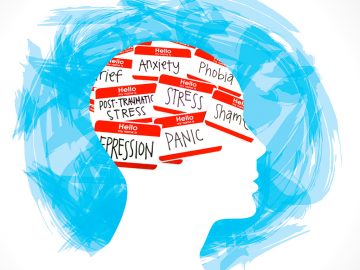
This article was written for the Mental Health unit in Grade 10 P.E.
What is Mental Health?
Mental health refers to our emotional, behavioral and cognitive well-being; it centers around how an individual feels and interacts with their environment.
People focus on the upkeep of their body by taking regular showers, maintaining a basic level of cleanliness and working out. They treat their body with care, yet the same level of dedication isn’t applied to the maintenance of their emotional and mental faculties. Mental health is often disregarded and thought of as pointless, especially in Asian culture, because many people believe that mental health issues are “made-up” or fabricated. Issues related to mental health can affect one’s day to day life, their interactions with others and their physical health. Mental disorders can often affect one’s ability to find a job, be in a steady relationship and make friends. Additionally, the stigma surrounding mental health can often create a feeling of self-doubt in people and can lead them to isolate themselves from others.
What’s the Stigma Surrounding Mental Health?
The realities of mental health are often misconstrued because people are simply not sufficiently educated about the topic. Along with that, a lot of false information is spread, which leads to people forming uninformed and unfounded conclusions. People with mental health issues such as bipolar disorder, OCD and PTSD are often labeled as crazy, violent, manic and dangerous.
According to HuffPost, “In the 1700s, people with psychological conditions were often thrown in jail or quarantined for their behavior, often
People have the innate tendency to label and segregate others who stray from behavior termed by society as “normal.” However, it’s important to be open minded and accepting of everybody. It’s the responsibility of each and every one of us to reject the stigma surrounding mental health and
- Mental illness is contagious.
- People with mental disorders are lacking in intelligence.
- People with mental disorders are damaged.
- Mental disorders are just part of one’s characteristics and can be “snapped” out of.
- People with mental illness are liabilities.
- People with mental illness will never get better.
All of the points listed above are false and untrue. Sir Isaac Newton, arguably one of the most famous mathematicians of our time suffered from nervous breakdowns and great fits of rage. He was later diagnosed with bipolar disorder. Abraham Lincoln suffered from debilitating depression. Yet their intelligence and contribution to the world can’t be doubted. This effectively disproves the false notion that mental disorders are synonymous with a lack of intelligence.
Can People with Mental Disorders Get Better?
The idea that people with mental illness will never get better is untrue as well. According to mentalhealth.org, “Most people who experience mental health problems recover fully, or are able to live with and manage them, especially if they get help early on.”
There are many mechanisms in place to bolster and help people with disorders such as depression and PTSD. Some such mechanisms can be found here at AISG! First and foremost, it’s important for the friends and family of people with mental health issues to provide support and comfort. It’s crucial to remind people with mental disorders that they’re not abnormal, or alone. They should be involved in games and activities, and research conducted by many esteemed universities shows that physical activity releases endorphins which can boost one’s spirits. The people around them should be patient, understanding and should try to educate themselves about mental health.
If one feels that they’re unable to deal with their mental health issues and need help, there are many options that they can explore. Therapists and counselors (like Ms. Lindsay and Ms. Brown!) are excellent options and provide a controlled and healthy outlet for one to release their emotions. Along with that, there are several over-the-counter

For the tenth-grade Mental Health unit in P.E., my group (Chie Y, Victoria Y, Esther M.) and I decided to shed light on some of the false notions surrounding mental health.
This article is only one of the ways in which we are trying to spread awareness. Distributed along the corridors are many infographics which contain information regarding mental health. If this article captured your attention, then those infographics are definitely worth a read. Along with that, our infographics can also be seen on the screen outside the theatre. We will also be posting positive affirmations on the school bulletin all throughout the month of April.
The information used in this article was found from: